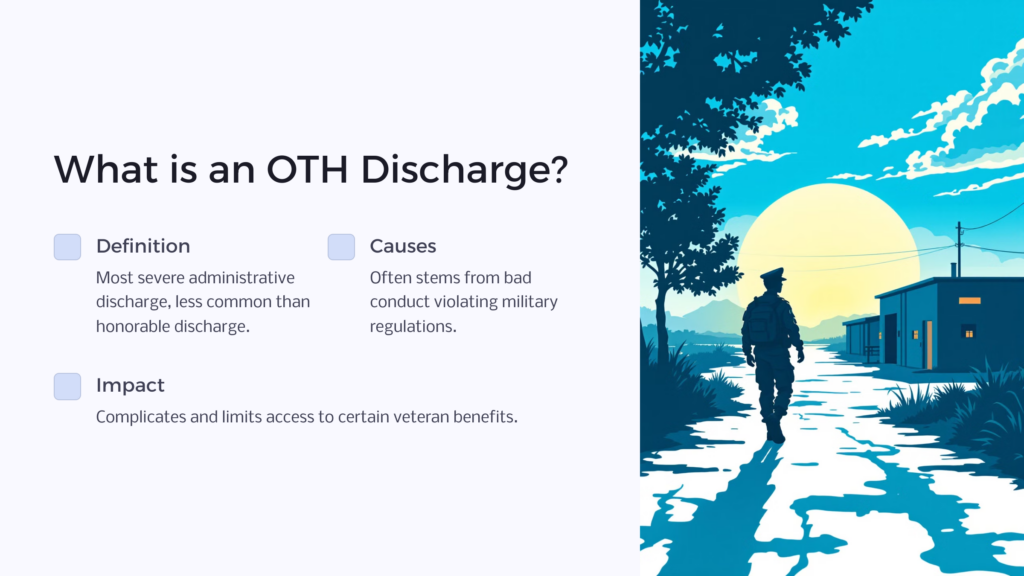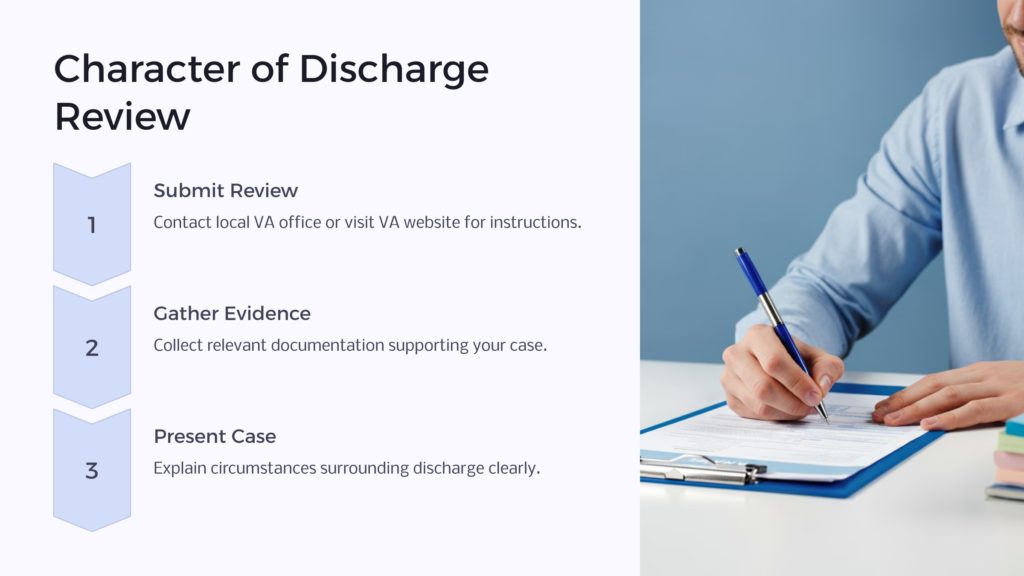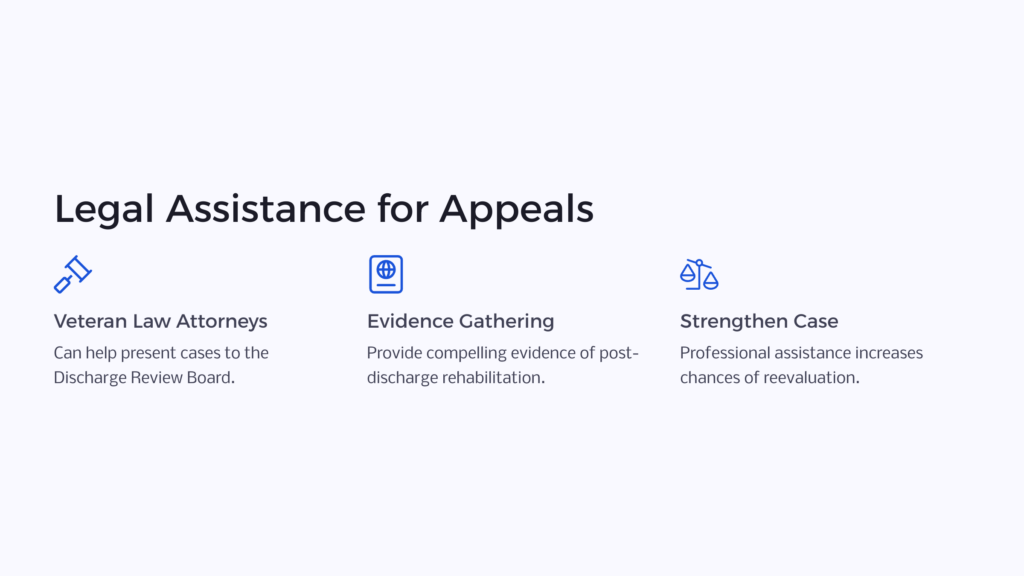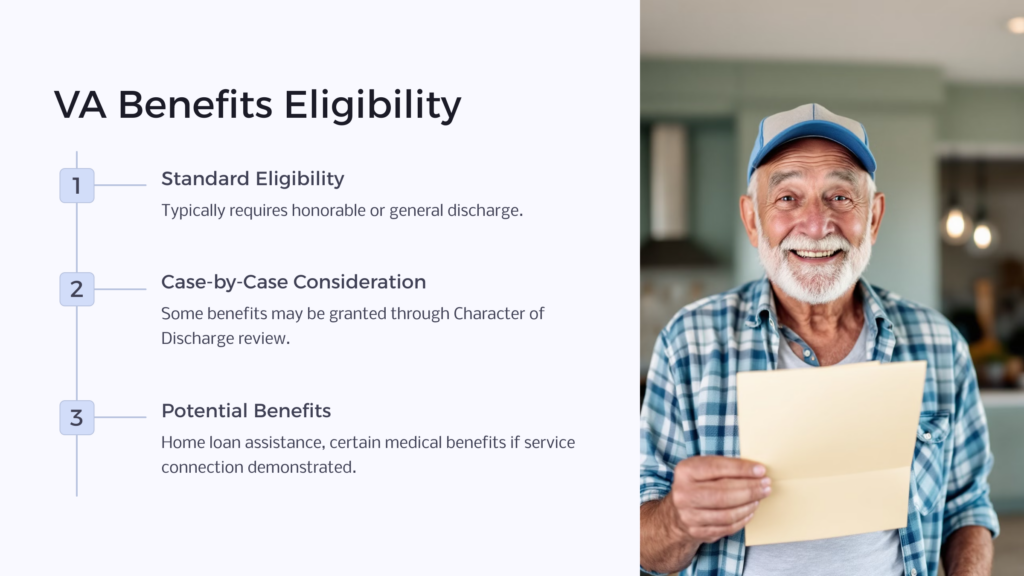An other than honorable (OTH) military discharge is the most severe type of administrative discharge. Although less prevalent than the honorable conditions discharge, OTH discharges often stem from bad conduct situations that violate military conduct regulations.
However, it’s important to analyze this topic with compassion. While the circumstances leading to an OTH discharge might be complex, these veterans still have rights.
Understanding Other Than Honorable Discharge

A dishonorable discharge usually occurs when a service member’s conduct substantially deviates from acceptable military behavior, which is also known as willful misconduct. Specific examples of willful misconduct could be security protocol violations, theft, or assault.
The way in which you are discharged from active duty will affect your life as a veteran. An honorable discharge shows that you have performed your duty and upheld military values, and will therefore afford you more advantages in civilian life. An OTH discharge signifies departure from military rules. This will complicate and limit your access to certain veteran benefits.
Submitting a Character of Discharge Review

A Character of Discharge review is a process used by the VA. They will evaluate a veteran’s military discharge status to determine their eligibility for certain benefits.The VA takes into account the circumstances surrounding the veteran’s discharge and considers factors such as conduct and service record. This review is an opportunity for veterans with a dishonorable discharge to present their case. If the VA gives a favorable review, these veterans can potentially access benefits typically reserved for those with honorable or general discharges from active duty service.
You can submit a Character of Discharge review through the Department of Veterans Affairs (VA). Veterans can contact their local VA office or visit the VA’s official website for instructions on starting the process. It’s important to gather any relevant documentation or evidence from their military records that supports their case and clearly explains the circumstances surrounding their discharge. By presenting the strongest possible argument, veterans can increase their chances of having their discharge status reevaluated, and their eligibility for certain benefits granted.
Appeal With Help From a Lawyer

Legal assistance can make all the difference for veterans with OTH discharges. Veteran law attorneys can help present cases to the Discharge Review Board. Having a professional on your side will strengthen your case by providing compelling evidence, such as post-discharge rehabilitation and previously unavailable information.
The Discharge Review Board
When considering appeals, the Discharge Review Board typically looks for evidence supporting the veteran’s rehabilitation and any new information that wasn’t available during the original service determination and discharge process. This can include testimonials, medical records, therapy reports, or any documentation demonstrating positive growth since the OTH discharge. Really, what the board wants to see is clear evidence of personal development in the veteran being reevaluated.
If your appeal is denied, know that other financial aid options are still available. For example, veterans may be eligible for state-specific benefits, such as tuition waivers or financial assistance programs. Additionally, some nonprofit organizations and foundations provide grants and scholarships specifically for veterans in need; reach out to veterans’ support organizations or advocacy groups for resources in pursuing help. These alternative sources of financial aid can be another way to receive vital support.
VA Benefits

The Department of Veterans Affairs offers various veterans benefits, from VA healthcare and VA disability compensation to education for dependents and home loans. However, eligibility for these benefits typically requires an honorable or general discharge. That said, there are still potential advantages available to them. These VA benefits, such as home loan assistance and certain medical benefits, may be granted case-by-case through a Character of Discharge review. Demonstrating the military service connection of their medical issues can improve their chances of accessing these benefits.
Some accessible benefits might include home loan assistance or medical benefits, provided the veteran can demonstrate the service connection of their medical issues.
Health Benefits
Health care is essential for any veteran. In certain instances, veterans with punitive discharges may qualify for medical or disability benefits under the VA. However, the application process for any VA healthcare or disability benefits may involve, among other military records, a Character of Discharge review, a VA form sometimes used when applying for VA disability benefits.
Education Benefits
The GI Bill provides veterans education benefits and typically requires having been released under honorable conditions. Some veterans with OTH discharges may be able to access these veterans benefits, typically after an appeal or discharge upgrade process. As with many facets of military benefits, the VA can make exceptions under specific circumstances.
Identifying benefits associated with an OTH discharge from active duty service can be strenuous, given the potential complexities of legal processes and situational exceptions. However, it’s crucial to recognize that veterans with a bad conduct discharge may still have access to certain valuable resources, including us here at Benefits.com, to help them earn the benefits they deserve.
Understanding military discharges in all their forms is essential to support veterans’ health, well-being, and post-service productivity. An all-or-nothing approach may undermine the nuanced and often complicated reality of military service.
If you know someone who’s dealing with an OTH discharge, please seek professional assistance to comprehend the potential benefits and legal processes. Empowering yourselves with information and resources may significantly impact post-military life quality. Your service mattered, and understanding the nuances of benefits associated with discharges can make a substantial difference.
 Benefits.com Advisors
Benefits.com Advisors
With expertise spanning local, state, and federal benefit programs, our team is dedicated to guiding individuals towards the perfect program tailored to their unique circumstances.
Rise to the top with Peak Benefits!
Join our Peak Benefits Newsletter for the latest news, resources, and offers on all things government benefits.



















